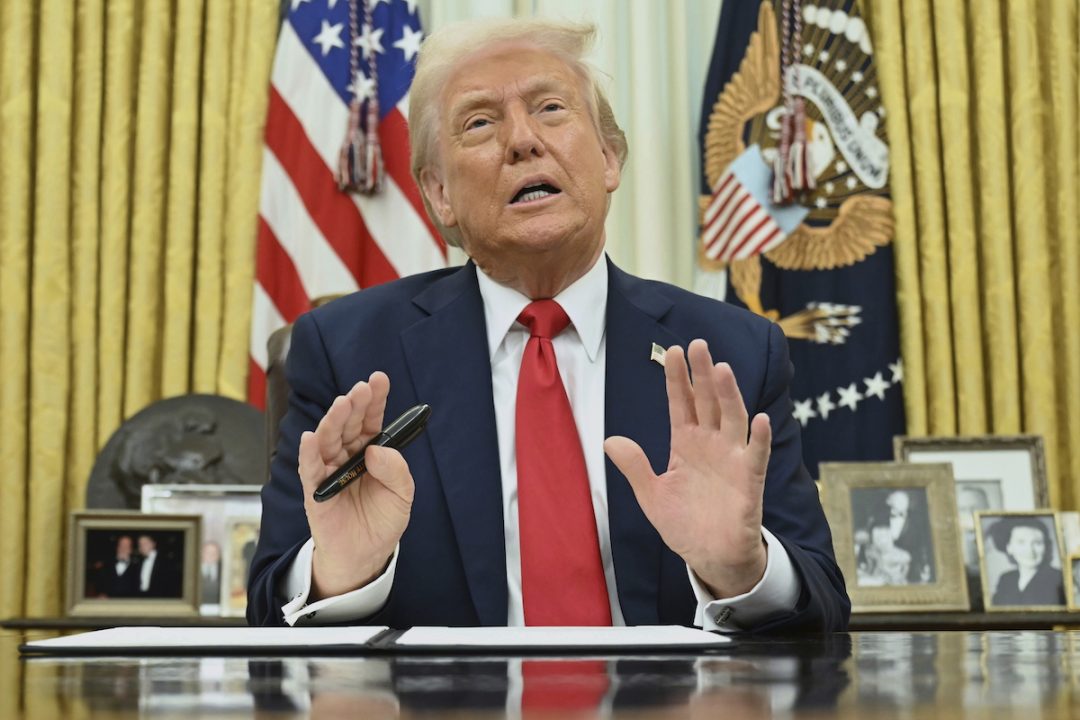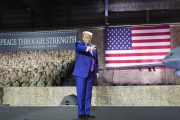
President Donald Trump’s executive order to reshape the nation’s election systems is facing major legal challenges. Two lawsuits filed Monday call the move unconstitutional and urge courts to block its enforcement.
The Campaign Legal Center and the State Democracy Defenders Fund filed the first complaint in D.C. federal court. Hours later, the Democratic National Committee (DNC), joined by the top Democratic organizations and leaders, filed a second.
At the heart of both suits is the Constitution’s Elections Clause. It gives states — not the president — the power to run elections and grants Congress limited authority to intervene. Trump, the suits argue, is attempting a power grab the Constitution does not allow.
The Nonprofit Challenge
The first lawsuit comes from three nonprofit groups: the League of United Latin American Citizens (LULAC), the Secure Families Initiative (SFI), and the Arizona Students’ Association (ASA). These groups claim the March 25 executive order — officially titled “Preserving And Protecting The Integrity Of American Elections” — does the opposite of what it promises. The suit reads,
The Order is a gross overreach beyond the President’s authority in violation of the Constitution and federal law and represents an unlawful intrusion into areas of election policymaking reserved by the Constitution to Congress and the states.
The complaint argues the president is attempting to dictate election rules “by executive fiat.” That, say the plaintiffs, violates the separation of powers.
Setting Ballot-counting Rules
One of the most contested parts of the executive order is Section 7, which directs the U.S. attorney general to take action against states that count mail ballots received after Election Day — even when those ballots are postmarked on time and accepted under state law. The complaint states,
States have wide discretion and flexibility under the Elections and Electors Clauses to establish the “times, places, and manner” of holding federal elections.
Eighteen states — along with D.C., Puerto Rico, and the U.S. Virgin Islands — allow ballots postmarked by Election Day to arrive and be counted afterward. Congress has acknowledged these differences and taken no action to override them. The lawsuit argues,
There is no conflict between the federal Election Day statutes … and state laws that permit validly cast ballots to be received and counted after Election Day.
No federal law authorizes the attorney general to “enforce” ballot receipt deadlines, say the groups.
Commanding an Independent Agency
The executive order repeatedly instructs the Election Assistance Commission (EAC) — an agency created by Congress — to carry out Trump’s directives. But the EAC is independent and bipartisan. It operates under statute and can only act through formal rulemaking approved by at least three of its four commissioners.
Trump’s order tells the EAC to:
- Add documentary proof of citizenship (DPOC) to the national voter registration form;
- Enforce presidential deadlines on mail ballots;
- Deny federal funds to states that don’t comply.
“The President has no authority to give the EAC, an independent agency, any such directive,” the complaint asserts.
But these actions must go through notice-and-comment rulemaking under the Administrative Procedure Act (APA) and meet requirements under the Paperwork Reduction Act (PRA). Even if the EAC wanted to follow Trump’s directives, it legally couldn’t — not without violating federal statutes and its own rules. The lawsuit says the order ignores these processes entirely, and thus cannot be enforced.
Proof-of-citizenship Requirements
At the center of the order is a mandate that voters provide documentary proof of U.S. citizenship to register using the Federal Form. But this very requirement has already been debated and rejected by Congress — and blocked by the courts.
The National Voter Registration Act (NVRA) deliberately excludes DPOC. Instead, it requires only a signed attestation under penalty of perjury. That design was upheld by the Supreme Court in Arizona v. Inter Tribal Council of Arizona.
“The NVRA acts as both a ceiling and a floor,” the complaint explains — meaning neither the president nor the EAC can add requirements not authorized by Congress.
Federal courts have repeatedly struck down similar efforts by states to impose DPOC, reminds the suit. Trump’s order now attempts to do what those states could not, but through executive fiat.
Cutting Off Funds Over Noncompliance
Trump’s order also threatens to strip federal election funding from states that refuse to follow his directives — including DPOC enforcement and ballot deadline changes.
Section 4 directs the EAC to withhold funds from noncompliant states. But under the Help America Vote Act (HAVA), the EAC must allocate funding according to specific statutory formulas, not White House preferences.
None of the laws governing election grants condition funding on DPOC or Election Day ballot deadlines. Plaintiffs warn the order could deprive states — especially populous ones such as California and New York — of critical election infrastructure funding, harming millions of voters in the process.
Key Accusations
The lawsuit outlines several key alleged violations:
APA and PRA Violations: The order bypasses mandatory rulemaking, public notice, and comment procedures required under both the Administrative Procedure Act and the Paperwork Reduction Act.
Violation of Spending Clause: The order imposes unconstitutional conditions on federal funding, attempting to coerce state behavior without congressional approval.
Unlawful Redefinition of Voting Standards: The order infringes on state authority under 52 U.S.C. § 21081(a)(6) to define what counts as a vote, by attempting to impose a nationwide standard through executive order.
Violation of the UOCAVA protections. The order directs the secretary of defense to revise the Federal Post Card Application, used by military and overseas voters, to require documentary proof of citizenship and vague “proof of eligibility.” The lawsuit says this undermines the core of the Uniformed and Overseas Citizens Absentee Voting Act, which guarantees voters can register and request ballots using a single, streamlined form.
Overreach of Executive Power: At every stage — directing the EAC, DOJ, and secretary of defense — the president assumes powers that the Constitution and federal statutes place elsewhere.
Democrats’ Suit
Top Democrats filed a second lawsuit the same day, accusing Trump of trying to tilt the rules in his favor.
Filed by Elias Law Group, the suit represents the Democratic National Committee (DNC), Democratic Governors Association (DGA), Democratic Senatorial Campaign Committee (DSCC), Democratic Congressional Campaign Committee (DCCC), and party leaders Senator Chuck Schumer (D-N.Y.) and Representative Hakeem Jeffries (D-N.Y.). It echoes many of the claims in the nonprofit case — calling the order “unconstitutional and anti-democratic.”
The lawsuit targets several provisions:
- Giving DOGE access to sensitive voter data;
- Imposing new burdens on military and overseas voters;
- Hijacking control of the EAC;
- Rejecting ballots mailed by Election Day but received after; and
- Threatening to withhold federal funds from noncompliant states.
“None of [this] is legal,” the complaint states. The group stressed, “Only the states and Congress have the power to regulate elections”
The suit urges the court to strike down the order, warning it would disenfranchise voters and damage election integrity nationwide.





